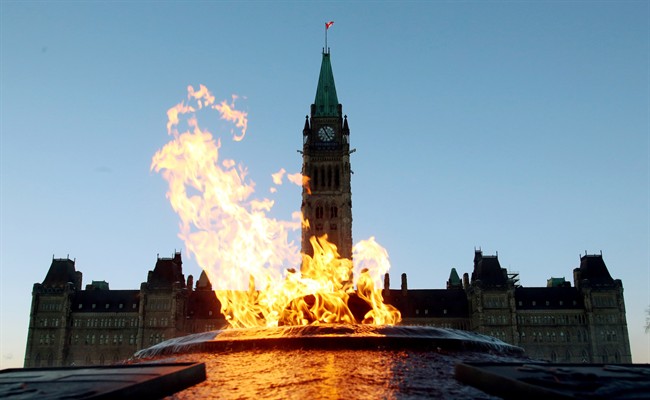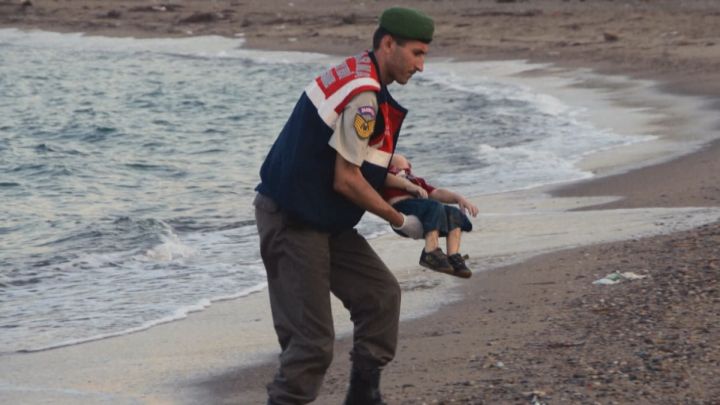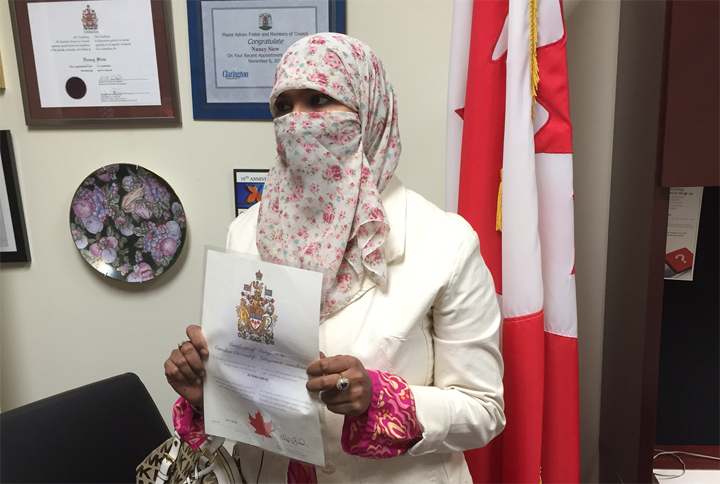It was a year of big changes and big news on Parliament Hill. A new government was elected, familiar faces bid farewell to political life and – as usual – more than a few people found themselves in the headlines for all the wrong reasons. Here, in no particular order, is a list of the top political moments of 2015.

1. A second Trudeau becomes prime minister
Nov. 4: Following in his father’s footsteps, Justin Trudeau is sworn in as Canada’s prime minister in front of his wife, children and new cabinet. A stunning election victory on Oct. 19 swept Trudeau and 183 other Liberals into the House of Commons, replacing the Conservative government under Stephen Harper. Within days, the domestic and international attention being paid to the young PM was being dubbed “Trudeaumania 2.0.”
2. The Boy on the Beach
September: Alan Kurdi’s body washes up on a Turkish beach and the world reacts with a mixture of sorrow, outrage and empathy for the thousands of refugees making the difficult journey from their homelands into Europe. Former prime minister Stephen Harper expresses deep sadness and becomes visibly emotional as he answers questions about Kurdi, but the federal government’s commitments regarding Syrian refugees do not shift as a direct result.
3. Conservative exodus
OK, so this was a series of moments. But taken together, the high-profile departures of ministers John Baird, Peter MacKay, Shelly Glover, Christian Paradis and James Moore represented a veritable mass exodus from the Conservative ranks. The ministers gave different reasons for leaving (or choosing not to run again) but there was speculation that many of them simply saw the writing on the wall.
4. Sexual Harassment on the Hill
March: Two Liberal MPs are suspended from caucus by Justin Trudeau after being accused of inappropriate behaviour toward unidentified female NDP MPs. The incident, along with the high-profile case involving former CBC host Jian Ghomeshi, pushes sexual harassment on the Hill out of the shadows.
5. Zunera Ishaq takes the Oath
Oct 9: In the midst of a lengthy court battle (still ongoing at the time) Zunera Ishaq is permitted to take the oath of citizenship while wearing her niqab. The Conservative government’s case against Ishaq, since dropped by the Liberals, was at the centre of a national debate over whether the government should have the right to tell a woman what to wear – or not wear – while swearing the oath.
6. Cheating hearts
July: Could Ottawa truly be the infidelity capital of the country? That seems to be the conclusion drawn by dating website Ashley Madison, as it releases data showing that one in five Ottawans is somehow subscribed to the site. On top of that, the most popular postal code for Ashley Madison members seems to be Parliament Hill. Weeks later, the website is hacked and millions of user profiles are made available online. There were subsequent allegations that the original Ottawa data was incorrect and many profiles were, in fact, fakes.
7. ‘Vanity Videos’
May: Former employment minister Pierre Poilievre releases a series of videos promoting a new Conservative child-care benefit program, but ends up in hot water over the use of taxpayer dollars for allegedly partisan purposes. The Opposition quickly brands them “vanity videos.”
8. Anonymous hacks the Hill
June 17: Angry over a contentious Conservative anti-terror bill, online activist group Anonymous targets Parliament Hill, causing federal sites to go down throughout the afternoon. The outage knocks dozens of departmental sites offline and reportedly affects BlackBerrys and internal network services. Treasury Board President Tony Clement confirms a cyber attack via Twitter.

9. Truth and Reconciliation
June 2: A summary of the long-awaited report from Canada’s Truth and Reconciliation Commission is released, with dozens of recommendations made to help repair the relationship between the federal government and First Nations peoples. Among them: call a federal inquiry into missing and murdered indigenous women and girls. The Conservative government maintains that such an undertaking would be expensive and unnecessary, a decision that will later be overturned by the new Liberal government. The full report is released later in December.

10. The Right to die
Feb. 6: The Supreme Court rules that certain Canadians, in specific circumstances, have the right to ask for a doctor’s assistance to die. The court gives Ottawa and the provinces a year to figure out how to amend the Criminal Code and enact legislation that will govern how the new right is exercised. The Liberal government has recently requested an extension to that deadline.






Comments